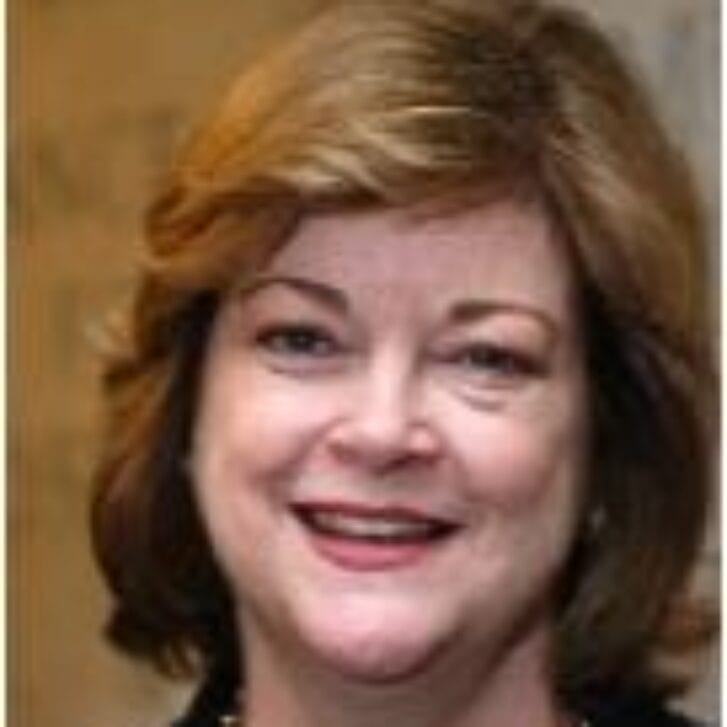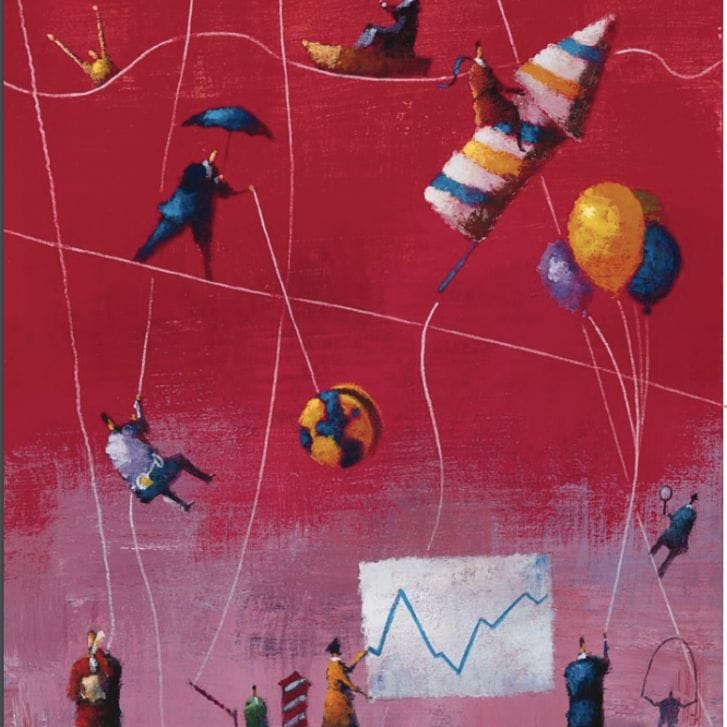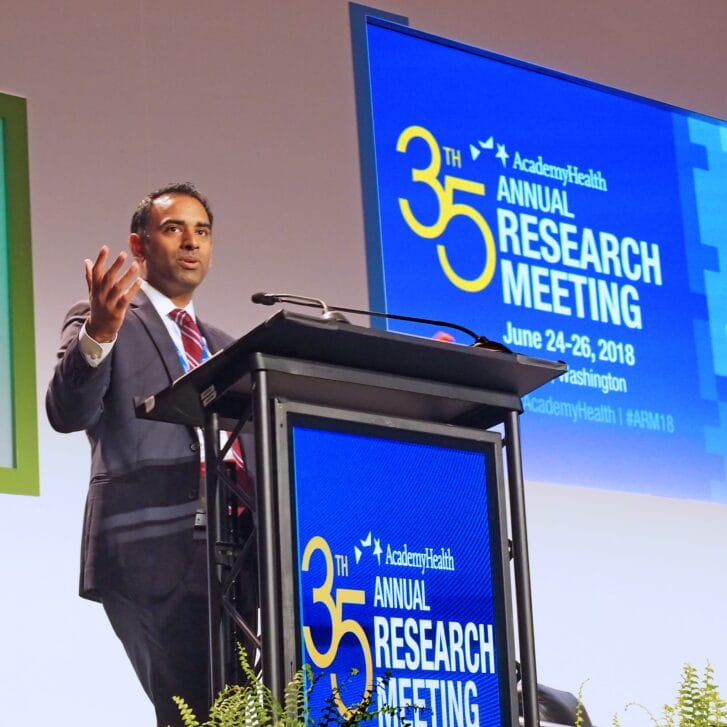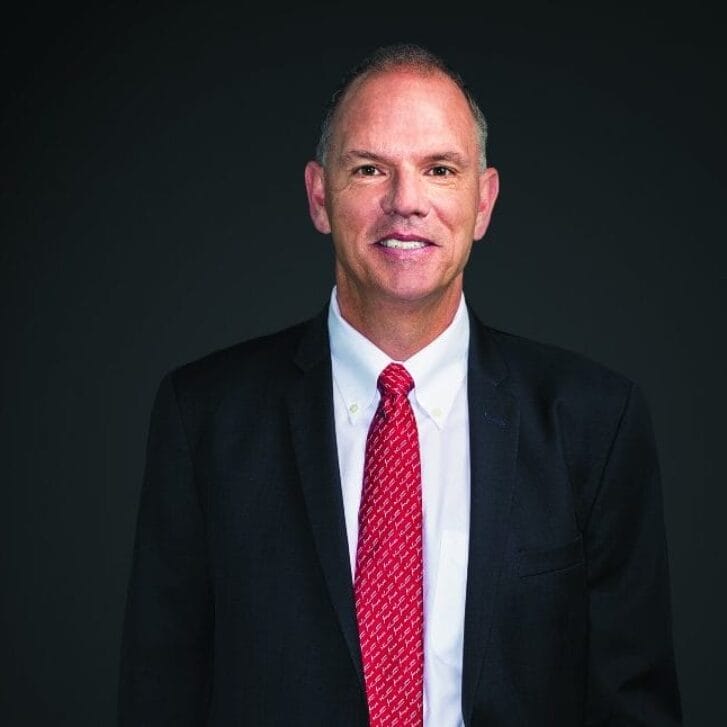New MBA Major in Electronic Commerce Offered
A new major in electronic commerce that will focus on designing and implementing effective electronic commerce strategies is now available for Wharton MBA students. Called “Managing Electronic Commerce,” the program aims to provide an in-depth foundation for students interested in pursuing Internet ventures – from electronic retailing to defining the role electronic commerce plays in traditional firms.
 With more than 50 faculty members across various disciplines participating, “Wharton is poised to address the whole breadth of issues relating to e-commerce,” says Patrick Harker, Wharton’s interim dean. “The Internet is impacting every aspect of business and, whether the context is legal, strategic, marketing or policy-oriented in nature, we have the resources and expertise to add value.”
With more than 50 faculty members across various disciplines participating, “Wharton is poised to address the whole breadth of issues relating to e-commerce,” says Patrick Harker, Wharton’s interim dean. “The Internet is impacting every aspect of business and, whether the context is legal, strategic, marketing or policy-oriented in nature, we have the resources and expertise to add value.”
The major, administered through the marketing department, will have an inter-disciplinary focus on several key areas, including advertising/ communication, electronic retailing, information structures for large organizations, pricing, product and service design, and supply chain management. For specific instruction in a particular area of interest, students can choose one of five separate tracks within the major: business-to-business, electronic media and marketing, entrepreneurial, information– based strategy and economics, and supply chain management.
“This major is reflective of what is already happening here at Wharton and in the world,” says David Schmittlein, Ira A. Lipman Professor and academic director of the e-commerce major. “Recognizing that our MBA students were already creating individualized majors with an e-commerce focus, this was a logical step. However, the nature of the Internet and e-business will continue to evolve and as that happens, so too will the requirements and electives of the major.”
Software, the Internet and multimedia continue to impact employment choices of Wharton students, making technology-related industries the third highest industry employer. More than 18 percent of the Class of 1999 and 19 percent of the Class of 2000 accepted technology-related positions. Though the e-commerce major is offered solely to MBA students, an undergraduate concentration is also being considered.
Gerrity Leads Forum on Electronic Commerce
Former Wharton Dean Thomas P. Gerrity has been named director of the Wharton Forum on Electronic Commerce, a business-to-business partnership focusing on e-business.
 Established in 1996, the Forum on Electronic Commerce brings together corporate leaders with a team of more than 50 Wharton faculty members from various disciplines to share insights and conduct research on a range of e-commerce issues. The Forum’s current research agenda includes studies on Web-based competition, Internet pricing strategies, emerging new models for Web-based enterprises, business-to-business e-commerce and online purchasing behavior. Among its initiatives, the Forum established the Wharton Virtual Test Market, which now has more than 18,000 panel members around the world participating in a large-scale behavioral study of Internet usage.
Established in 1996, the Forum on Electronic Commerce brings together corporate leaders with a team of more than 50 Wharton faculty members from various disciplines to share insights and conduct research on a range of e-commerce issues. The Forum’s current research agenda includes studies on Web-based competition, Internet pricing strategies, emerging new models for Web-based enterprises, business-to-business e-commerce and online purchasing behavior. Among its initiatives, the Forum established the Wharton Virtual Test Market, which now has more than 18,000 panel members around the world participating in a large-scale behavioral study of Internet usage.
Forum members include: British Airways, Fannie Mae, Ford Motor Co., IBM, Johnson & Johnson, Kraft Foods, Scottish Widows and State Farm Insurance. Affiliate and research members include AnswerThink Consulting Group, CDNow, eBay, Flycast Communications, Media Metrix, Peter Max and US Interactive.
Gerrity, an early pioneer in the strategic application of technology, was founder and CEO of the Index Group, a leading information technology and management-consulting firm. Under his leadership as dean of Wharton from 1990 to 1999, the school attracted record numbers of applicants, unprecedented financial support and widespread recognition around the world for its leadership in management education.
Ford Gives $1.5M to Wharton
In one of Wharton’s largest gifts from a publicly traded company, Ford Motor Co. has given $1.5 million to the school to support a wide range of student and faculty programs.
 The gift, part of a $2 million gift to Penn, will fund projects including minority programs and fellowships, a program for high school students from underrepresented minority groups, the Forum on Electronic Commerce, the Global Consulting Practicum, and the Environmental Management Program. Made possible through the Ford Motor Company Fund, the funds will be contributed to the School over a five-year period. The remaining $500,000 of the $2 million grant was awarded to Penn’s School of Engineering and Applied Science (SEAS).
The gift, part of a $2 million gift to Penn, will fund projects including minority programs and fellowships, a program for high school students from underrepresented minority groups, the Forum on Electronic Commerce, the Global Consulting Practicum, and the Environmental Management Program. Made possible through the Ford Motor Company Fund, the funds will be contributed to the School over a five-year period. The remaining $500,000 of the $2 million grant was awarded to Penn’s School of Engineering and Applied Science (SEAS).
“Ford Motor Company’s relationship with the University of Pennsylvania is a partnership in the truest sense, and Ford is committed to keeping it strong,” says Jacques A. Nasser, president and CEO of Ford Motor Company. In October, Nasser spoke on campus as a part of Wharton’s Zweig Executive Dinner Series. Named CEO of Ford in January 1999, Nasser is widely regarded as the driving force behind dramatic changes at Ford. For more on Nasser and Ford, see a related story in Knowledge@Wharton.
Conference on Virtual Communities
 Creating “virtual communities” is all the rage in e-commerce circles as a growing number of dot-coms strive to generate repeat hits by creating interactive, shared space on line. The best example of this trend is book-selling powerhouse Amazon.com, which posts customer book reviews, tracks shoppers’ buying interests and suggests other titles based on previous purchases.
Creating “virtual communities” is all the rage in e-commerce circles as a growing number of dot-coms strive to generate repeat hits by creating interactive, shared space on line. The best example of this trend is book-selling powerhouse Amazon.com, which posts customer book reviews, tracks shoppers’ buying interests and suggests other titles based on previous purchases.
Wharton’s Reginald H. Jones Center for Management Policy, Strategy and Organization, IBM’s Institute of Knowledge Management and the Xerox Palo Alto Research Center will hold an April 7 conference on this issue at the Park Hyatt at the Bellevue Hotel in Philadelphia. The conference will examine the economic, social, and educational implications of virtual communities, as well as ways that businesses and other organizations can leverage this new communications tool.
 Wharton MBA Series Tackles Issues
Wharton MBA Series Tackles Issues
Technology, media and entertainment and business in Latin America are among the myriad topics to be addressed at the 1999-2000 Wharton Conference Series, a high-profile program organized and run by Wharton MBA students. A highlight is the Whitney M. Young Jr. Memorial Conference on January 20-23, an event sponsored by the school’s African-American MBA Association. This event is a forum for African-American achievement and opportunity in business and industry and is widely attended by students, prospective students, alumni, and industry leaders.
A Wharton Sophomore with an Arm
When Gavin Hoffman graduated from high school in Wayzata, Minnesota, in the western suburbs of Minneapolis, lots of folks figured he was four years away from quarterbacking in the National Football League. He set more than a dozen school records while leading Breck High School to the Class “B” state championship, throwing for 2,506 yards and 25 touchdowns in his senior year. He was the Gatorade Player of the Year for Minnesota and a USA Today honorable mention All-American. At 6-foot-6 and 233 pounds, his size and strong arm impressed Division I coaches everywhere.
 Hoffman committed early to Northwestern University, one of the few schools that in his mind combined top-notch football with equally top education. Northwestern committed to him, too, and he started all 12 games last year as a freshman.
Hoffman committed early to Northwestern University, one of the few schools that in his mind combined top-notch football with equally top education. Northwestern committed to him, too, and he started all 12 games last year as a freshman.
But a disappointing 3-9 season and a coaching change caused Hoffman to reconsider his future. “I decided that education was becoming more important to me,” says Hoffman. “I looked at Ivy League schools, since being in (NCAA) Division I-A, they would let me play without sitting out a year. And when it came down to it, the chance to go to the best business school in the country won out.”
The Wharton sophomore became the Penn Quakers’ starting quarterback with the fall’s first game against Dartmouth. Ivy League football, he said, is just as challenging as Big Ten football; it’s just not as all-consuming.
“Football’s football, wherever you go,” he says. “But there is just not as much of a time commitment. Here there is an emphasis on the whole college experience. In Division I, you spend almost all of your free time doing football and nothing else. You work out in the off-season. You stay on campus in the summer to work out. Sometimes it seems as if that is all there is in life and that can be unhealthy.”
Hoffman says he has no regrets about downsizing his collegiate football commitment. His interest in a business career is paramount now – though he still wouldn’t mind that NFL contract.
“I think that is everyone’s goal who plays at the college level,” says Hoffman. “Plenty of players came from the Ivy League into the NFL. But if it doesn’t happen, then I am prepared to go on with my life.” – Robert Strauss
Alums Celebrate at MBA Homecoming Weekend
 A new Wharton tradition was born October 8th through 10th: the Wharton MBA Alumni Homecoming Weekend. The event brought together students and alumni to jointly celebrate the history, tradition and accomplishments of the school. The weekend’s highlights included faculty speakers, an MBA pub on Friday evening, tours of campus museums, a career management workshop, and sporting events between alumni and current students. The weekend culminated with a Saturday night party under a tent on the Lehman Quad. The MBA Alumni Homecoming was held concurrently with the school’s third Alumni Leadership Conference (ALC), which offered constituency- based training to a variety of Wharton volunteer groups.
A new Wharton tradition was born October 8th through 10th: the Wharton MBA Alumni Homecoming Weekend. The event brought together students and alumni to jointly celebrate the history, tradition and accomplishments of the school. The weekend’s highlights included faculty speakers, an MBA pub on Friday evening, tours of campus museums, a career management workshop, and sporting events between alumni and current students. The weekend culminated with a Saturday night party under a tent on the Lehman Quad. The MBA Alumni Homecoming was held concurrently with the school’s third Alumni Leadership Conference (ALC), which offered constituency- based training to a variety of Wharton volunteer groups.
In Memoriam: Professor Howard E. Mitchell
Howard E. Mitchell, UPS Foundation Professor Emeritus of Human Resources and Management, died September 30 at age 78 after a distinguished academic career. Mitchell’s interests ranged from management, organizational behavior and human resources development to managing a diverse workforce and corporate social responsibility, among other areas.
 Mitchell was a psychologist by training and initially joined the Penn faculty as an assistant professor of family study in psychiatry in the School of Medicine. In all, Mitchell spent 37 years at Penn, 18 of those at Wharton. His myriad accomplishments include a position as director of Wharton’s Human Resource Center from 1974 to 1984, research on transportation management that influenced transportation agencies on a federal and local level, and a key role in planning, designing and staffing a children’s village for dependent and neglected children in southwestern Arkansas. Mitchell also won numerous teaching awards and was known for his generosity in mentoring many undergraduate and MBA students.
Mitchell was a psychologist by training and initially joined the Penn faculty as an assistant professor of family study in psychiatry in the School of Medicine. In all, Mitchell spent 37 years at Penn, 18 of those at Wharton. His myriad accomplishments include a position as director of Wharton’s Human Resource Center from 1974 to 1984, research on transportation management that influenced transportation agencies on a federal and local level, and a key role in planning, designing and staffing a children’s village for dependent and neglected children in southwestern Arkansas. Mitchell also won numerous teaching awards and was known for his generosity in mentoring many undergraduate and MBA students.
“I first knew Howard in the early 1970s, first as the father of one of my law school colleagues, and then as a fellow faculty member,” says Janice Bellace, Samuel A. Blank professor of legal studies and interim associate dean for Development and Alumni Relations. “But it was not until I was undergraduate dean in the early 1990s that I saw a side to Howard that was unknown to many. To say that Howard ‘mentored’ students does not convey the very substantial amount of time he spent advising, encouraging and challenging undergraduates, especially those who were having some difficulty in the program. They recognized that this senior, distinguished professor truly cared about them and wanted them to succeed, and the students felt they couldn’t let him down.”
Mitchell earned a degree in psychology in 1943 from Boston University. He came to Penn for his PhD, which he received in 1950 after serving in the U.S. Army in Europe during World War II. He later received the Presidential Award for Service for his contributions during the war. In addition to his teaching and scholarly research, Mitchell founded a consulting firm, Mitchell & Mitchell, with his wife, Nadine, a former Haverford College English professor. The firm went on to receive the U.S. Department of Transportation’s Minority Business Enterprise Award. Mitchell consulted for Ford Motor Co., General Motors Corp., and the U.S. Department of Transportation, among other businesses and agencies.
Numerous scholarships and fellowships have been created in Mitchell’s name. The Black Wharton Undergraduate Association established the Howard E. Mitchell Scholarship in 1986. In 1992, the Howard E. Mitchell Fellowships were created to award graduate fellowships and internships at sponsoring businesses.
John Richards, WG’76: Making Starbucks More Than Morning Coffee
With an annual growth rate of 25 to 30 percent that’s charged by 370 new store openings a year, Starbucks is clearly more of a double espresso than decaf kind of company.
“We obviously have a real machine when it comes to finding and building and staffing new stores,” says John Richards, WG’76, who became president of Starbucks $1.5 billion, 2,200-store retail business two years ago.
 Richards, 51, who joined Starbucks after 10 years with the Four Seasons hotel chain, is the point man in the company’s ambitious, multi-continent expansion plans and is also working to broaden the Starbucks’ concept beyond just morning coffee. By the end of this fiscal year, Starbucks will have 500 stores serving gourmet “grab and go” lunches and other food offerings, Richards says. And officials hope that evening “coffeehouse” initiatives, now being test marketed, will entice customers to “hang out” and thus indulge in more coffee and a gourmet dessert or two.
Richards, 51, who joined Starbucks after 10 years with the Four Seasons hotel chain, is the point man in the company’s ambitious, multi-continent expansion plans and is also working to broaden the Starbucks’ concept beyond just morning coffee. By the end of this fiscal year, Starbucks will have 500 stores serving gourmet “grab and go” lunches and other food offerings, Richards says. And officials hope that evening “coffeehouse” initiatives, now being test marketed, will entice customers to “hang out” and thus indulge in more coffee and a gourmet dessert or two.
Starbucks’ new focus is largely Richards’ doing. In addition to spear- heading the consumer research behind these changes, he also created the company’s first product development group, which acquires or develops offerings to enhance the company’s core business.
“We want to keep growing, and so it’s incumbent on us to persist in evolving the concept of Starbucks so it continues to be relevant and interesting to consumers as we become more ubiquitous,” Richards says. “In some ways, we are paranoid about this. We are extremely sensitive to issues of being too big and too common.”
Richards says there’s no reason to make comparisons between Starbucks and high-flying restaurant chains that got too big, too fast. Boston Chicken, for example, was once a Wall Street darling, but declared bankruptcy in late 1998 after expanding beyond its market. Richards, as well as several industry analysts, say such a scenario isn’t likely for Starbucks. For one, the typical Starbucks store operates profitably in a very small trading area and doesn’t grapple with the overhead issues that stymie many restaurant chains. Another critical point: Starbucks is an everyday business, with 10 percent of customers returning twice a day.
But it’s vital, Richards says, to keep capitalizing on the Starbucks brand and seizing larger chunks of the country’s $18 billion coffee market. One example of this: Barnes & Noble operates 375 cafes in its bookstores, all of which serve Starbucks coffee. “That’s an example of us leveraging the brand and creating a different context for it. So the brand has two faces to it: the Starbucks store that we all know, and this thing called Barnes and Noble, which is really all about books and contemplation and weekends and evenings,” Richards says.
After graduating from Bucknell University with degrees in sociology and history, Richards went to work for Procter & Gamble, then got his MBA at Wharton. After stints at McKinsey & Co. and the Royal Viking Cruise Line, he joined the Four Seasons hotel chain where he went on to become executive vice president of operations and led the chain’s rapid expansion into 20 countries. Today, Richards lives in the Seattle area with his wife, Catherine, and their two daughters, Jacqueline, 14, and Jennifer, 9. In his spare time, he enjoys, golf, tennis, architecture, and of, course, coffee. “Doesn’t everyone?” he quips, rhapsodizing about his favorite brew, Starbucks Anniversary Blend.
He sees many similarities between his work at the Four Seasons and at Starbucks. “But at Starbucks, we do many, many more projects, and they happen more quickly. Starbucks is high growth and very entrepreneurial. In that sense, I’ve made quite a shift and this role is exhilarating in a very different way.”


























